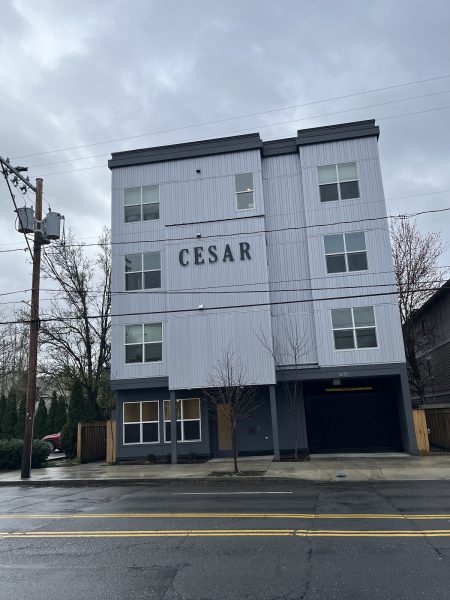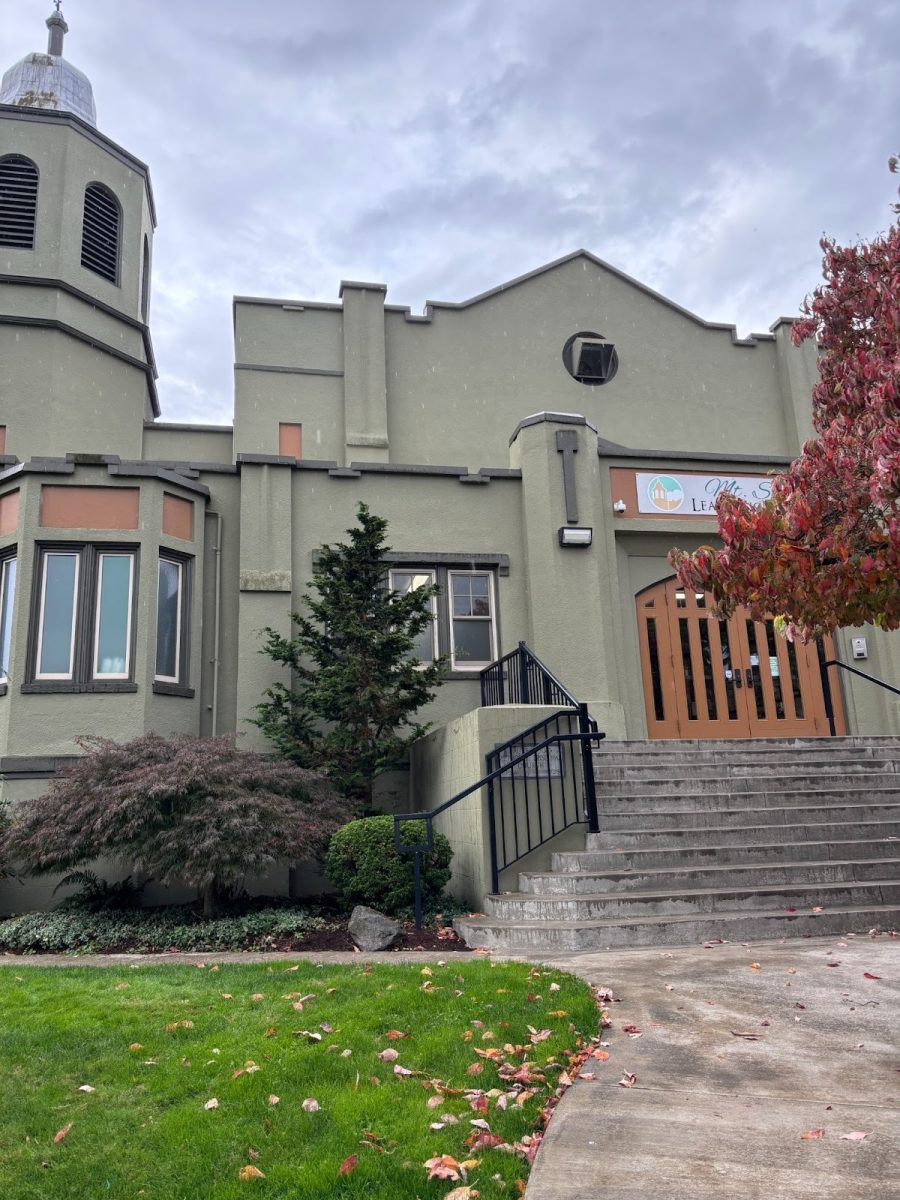
Beginning around July 2025, tenants will start moving into the Cesar Apartments, located at 1610 SE Cesar E Chavez Blvd., which have been converted by the organization Home Forward into Permanent Supportive Housing (PSH) for individuals exiting chronic houselessness. Home Forward is a public corporation that contracts with the federal government to administer housing programs.
The Cesar initiative will offer all incoming tenants both affordable rent prices and supportive services. With this dual purpose, PSH “is a specific type of affordable housing designed to permanently end someone’s homelessness,” explains Julia Comnes, a spokesperson for the Homeless Services Department at Multnomah County. This department is supporting the project by funding the services and rent assistance.
For someone experiencing houselessness to start living at the building, they will go through Multnomah County’s Homeless Services Department via “coordinated entry,” as Jonathan Trutt, director of development at Home Forward, explains. Trutt describes how the Homeless Services Department will place the individual on “a coordinated list where they’re assessed largely on how vulnerable they are.” Once someone receives a referral, Home Forward will work with the individual to help them get moved in and start living at the Cesar.
A key way PSH helps houseless individuals access residences that they can make their home is through affordability. At the Cesar, rent prices will be set at 30% of a tenant’s income. Comnes highlights how this means that if someone exiting chronic houselessness has no current income, “they don’t pay rent.”
Beyond being able to afford a place to live, PSH will offer Cesar residents additional need-based services. Trutt explains how the type of service provided to individuals will be dictated on a case-by-case basis, depending on the needs of the individual, as these services are meant to “meet people where they are.” Comnes adds to this, detailing how some examples of supportive services could include supporting residents in “signing up for healthcare services, finding employment, going back to school, applying for government-funded disability services, or accessing behavioral health support.”
Home Forward itself will not be managing these services. “Providing affordable housing to people who are exiting homelessness is a really specific skill and requires really specialized knowledge of how to deliver services,” Trutt explains. “And for us, whenever we’re doing any kind of housing of people leaving homelessness, [we] partner with a group that specializes in doing just that.” For the Cesar, supportive services will be offered by the Somali American Council of Oregon (SACOO).
According to Trutt, one of the reasons Home Forward chose this organization was their ability to culturally respond to the residents. He highlights, “People who are Black are overrepresented within [houselessness], and it can be really helpful to work with a service provider where the staff is culturally fluent or at least culturally competent.” Home Forward hopes that by choosing SACOO they will be able to support racially diverse tenants as “[SACOO] understand[s] what it’s like to be a person of color and how that [may impact individuals’] experiences with homelessness.”
The decision to buy an already existing apartment building, rather than constructing one, will allow for a much sooner lease of the apartments. Current residents of the Cesar have been given the option to continue living in their apartment or receive relocation assistance from Home Forward. Gabriel Matthews, a spokesperson for the Portland Housing Bureau which is working with Home Forward to both fund and regulate the Cesar, explains how “acquiring an existing building is more affordable and can bring units online faster.”
Some minor renovations are still needed for the Cesar before tenants can move in, which are set to begin in approximately the next three months. This includes updating the apartment security, adding a central laundry room and transforming the open common space to be able to be closed off for office space or other private uses.
“People have a bunch of barriers, and those barriers don’t mean they inevitably are going to be homeless. … It’s just that what they need is a stable place so they can work on the things that they need to work on,” Trutt explains, highlighting how PSH envelops the idea that each person exiting houselessness has a different story with their own unique struggles. He concludes, “That’s what the permanent supportive housing model is, that you have a place that is your home, … and that’s the way we’re going to really make a dent in homelessness.”


































